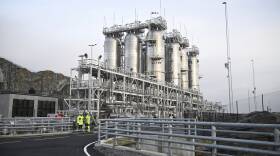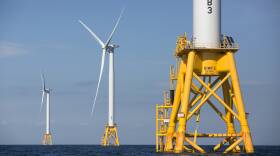-
Why your gas bill’s delivery charge should go down soon in Massachusetts
State regulator moves to curb gas companies’ spending on new pipelines and reinforce the goal of a shift away from gas. -
Solar panel company accused of shady business in Massachusetts
California-based company Sunrun Inc. has sued more than 420 Massachusetts residents for breaking contracts. Many homeowners allege it’s a scam. -
How will lichen adapt to climate change?
This mysterious indicator species plays an important role of the bottom of the food chain, and is also a habitat for other microorganisms. -
Tesla sales dip in Massachusetts
The number of newly registered Tesla's dropped sharply in January and February as the company’s CEO took on a visible role in the Trump administration. -
Mass. residents will see lower gas bills for March and April, regulators say
Skyrocketing electric and gas utility bills for Massachusetts customers has state leaders "finger pointing" and asking the state’s Department of Public Utilities to find ways to reduce rate increases on homeowners this winter. -
Experts worry about how tariffs would impact Massachusetts residents
The import taxes could mean higher costs to consumers, plus higher energy bills. -
As carbon dioxide builds up in the atmosphere, many companies are working to capture it
Laura Lammers of the carbon capture company Travertine says if humans were to stop emitting CO2 today, it would still take thousands of years for the Earth to take back what has already been emitted. -
Is offshore wind driving whales ‘crazy?’ Science says no
“If you’re into whales, you don’t want windmills,” Trump said. Whale experts say the facts show otherwise. -
What do Trump's executive actions mean for Massachusetts' clean energy sector?
Former EPA New England administrator David Cash discusses how clean energy rollbacks could impact the region. -
How long can North Atlantic right whales live? Scientists may finally have an answer
The endangered right whales' median age at death is about 22. Southern right whales, a closely related species, generally live into their seventies. The difference? Southern whales aren’t facing entanglements in fishing gear and boat collisions at the same rate.








